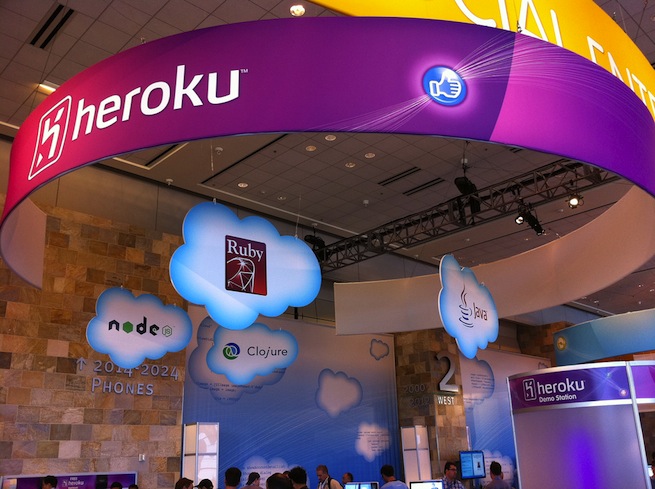Today, Heroku is making some noise about a new flavor of computing instances — or slices of physical servers — that offer a big performance boost to developers.
Amazon Web Services makes headlines all the time in the public cloud market. But cloud provider Heroku, which actually runs on top of Amazon’s cloud, has been a quiet favorite among developers for years.
The new instances, which Heroku calls Performance Dynos, pack 6 GB of RAM, 12 times as much memory as Heroku’s entry-level offering.
Of course, the new Performance Dynos cost more — 80 cents an hour, compared to 5 cents an hour, according to a blog post about the news from Matt Soldo, senior director of product marketing at Heroku.
By beefing up the instances available to developers, Heroku is aiming to meet the needs of specific applications that would perform better by staying on one instance than spanning out to additional instances.
Amazon, too, has been providing more powerful individual instances in recent months, with options optimized for data warehouses, certain types of databases, and compute-heavy applications.
Amazon isn’t a direct competitor of Heroku. Amazon provides Infrastructure as a Service (IaaS), while Heroku is dealer of Platform as a Service (PaaS). Practically speaking, developers wishing to deploy applications on Amazon must do complex configuration work when they want their applications to run on more and more infrastructure. On Heroku, developers can quickly and easily build and run applications that can more easily handle fast-growing increases in web traffic.
But unlike Amazon, Heroku is limited in its feature set. Other than the Dynos, it has a managed database that runs in the cloud, and that’s it. Amazon, on the other hand, has a very wide range of services in its portfolio.
Even with these differences, Heroku’s owner, Salesforce.com, surely wants to make the most of Heroku after paying $212 million for it in 2010. Heroku needs to stay involved in the conversation as more companies get serious about running more applications on cloud-based infrastructure. Newly added premium support helps make Heroku more compelling. At $1,000 or more per month, it won’t be a cheap addition, but for companies that want to stick with the ease of Heroku, this could help right alongside the new instances.
VentureBeat's mission is to be a digital town square for technical decision-makers to gain knowledge about transformative enterprise technology and transact. Learn More

